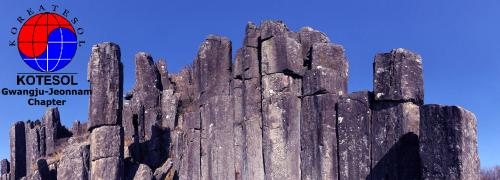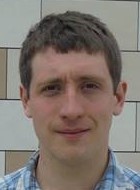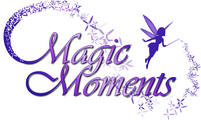
Gwangju-Jeonnam Chapter January Meeting
.
––– Morning Reflective Practice Session –––
Time: 11:00 am - 12:30 pm (Sat., Jan. 14)
Location: Kenya Espresso Cafe, near GNUE. (The 2nd building from GNUE main gate, towards E-mart. Map at bottom.)
ㅡ Topic: Reflecting on Diversity in the Year Ahead: From Your Classroom to the World
ㅡ Facilitator: Maria Lisak, Chosun University, Dept. of Public Administration & Social Welfare
––– MAIN MEETING SCHEDULE –––
Time: Saturday, Jan. 14, 2017, 1:45 - 5:00 pm
Location: Gwangju National University of Education (GNUE), Teacher Training Center (교사교육센터) 1st Floor; Room 811. Detailed directions HERE.
1:45 pm: Sign-in and Meet-and-Greet (Admission: Free for first-time attendees. Membership welcomed.)
2:00 - 2:50 pm: Presentation 1
Critical Thinking in EFL Classes for All Ages and Levels: Principles, Approaches, and Activities
Stewart Gray (Baekseok Culture University, Cheonan, Chungnam)
2:50 - 3:15 pm: Refreshment Break
3:15 - 4:05 pm: Presentation 2
Magical Moments and Critical Incidents
Dr. David Shaffer, Gwangju
4:15 - 4:45 pm: Swap-Shop Presentations
Share your Teaching Ideas, Classroom Activities, and Teaching Wisdom with the group.
(Everyone is encouraged to share [up to 5-6 min. each]. Short tidbits are welcomed. Handouts also welcomed.)
4:45 - 5:00 pm: Announcements / Drawing for Door Prizes / Closing
Presentation Summaries and Presenter Bio-sketches
.
ㅡ Morning Reflective Practice Session ㅡ
Reflecting on Diversity in the Year Ahead:
From Your Classroom to the World
Session Facilitator
 Maria Lisak, Chosun University Dept of Public Administration & Social Welfare (Co-founder of Gwangju-Jeonnam Reflective Practice Group, Past Chapter President, Lifetime KOTESOL member)
Maria Lisak, Chosun University Dept of Public Administration & Social Welfare (Co-founder of Gwangju-Jeonnam Reflective Practice Group, Past Chapter President, Lifetime KOTESOL member)
Join us this January 14th to jumpstart your reflection plan for 2017! The prompt to get us to think outside of our regular teaching habits centers around diversity: diversity in our classes, our schools, and in South Korea. The morning's activities invite us to think and share about our micro, meso, and macro spaces of teaching and learning. In thinking about diversity in our South Korean classrooms, we can end up exploring the world and mapping out a reflective plan for 2017!
_______________
Critical Thinking in EFL Classes for All Ages and Levels: Principles, Approaches, and Activities
Stewart Gray
A familiar challenge to ESL teachers interested in promoting critical thinking and discussion among students is designing and implementing classes that permit and encourage these things: the age of students, their disposition, their ability to communicate in English, and the materials and activities to be used. These are all factors that require consideration. To highlight some of the available options, the focus of this workshop is a number of approaches to critical thinking in the EFL classroom as well as the philosophies of design and the teacher behaviors that can contribute to a classroom environment in which students are empowered to think and discuss critically, and to actively create and negotiate ideas rather than passively accept them.
This workshop includes examples of various efforts made by the presenter to make his own teaching contexts (which included adult students and young learners, advanced students and beginners) more "critical" and to encourage students of all language levels to engage in English-language discussion. Supporting these examples with educational literature, this workshop provides a list of potentially useful advisory points for designing classes, interacting with students, encouraging them to interact, and managing and supporting their language use. Attendees will have the opportunity to reflect upon and share their own experiences and perspectives, negotiate the validity of the presenter’s suggested approaches to their own teaching context, and consider how to, and whether to, include critical thinking and discussion in classes of their own.
The Presenter
 Stewart Gray is an English teacher who has been living in Korea since 2011. He has worked with a wide variety of students in different contexts. He completed his MA TESOL at Dankook University (Jukjeon), and is a PhD student with the University of Leeds (England). He is currently one of the facilitators of the KOTESOL Reflective Practice SIG. His research interests include language and identity, reflective practice, critical thinking, and critical pedagogies.
Stewart Gray is an English teacher who has been living in Korea since 2011. He has worked with a wide variety of students in different contexts. He completed his MA TESOL at Dankook University (Jukjeon), and is a PhD student with the University of Leeds (England). He is currently one of the facilitators of the KOTESOL Reflective Practice SIG. His research interests include language and identity, reflective practice, critical thinking, and critical pedagogies.
_______________
Magical Moments and Critical Incidents
Dr. David Shaffer
Good-bye 2016; hello 2017! The change of the year is always a good time to reflect on the past twelve months and make plans for the upcoming dozen. In this session, we are going to look back on our ELT (English language teaching) experiences over the past year, pick out those “magical moments” that we had, and share them with our group.
“Just what do you mean by “magical moment”? you may ask. One definition I’ve found is that “a magical moment is when something unexpected and exciting happens because of something a student says, for example.” So, they may be student-generated, but they don’t have to be. A more encompassing definition by another ELT professional is that magical moments are “inspiring, unplanned moments originating in class from the teacher, students, or both.”
Magical moments are “Ah-ha! moments” – those memorable moments that pounce upon us unexpectedly, filling us with the sudden realization of success, of attainment, or of the path to success or attainment. They may be moments such as when a student pronounces correctly for the first time that word that she was having trouble with all semester (I had trouble with “umbrellella” until I was school age). Or when a student grasps that structure that she constantly confused with another but now realizes how they are different and what situations to use the structure in.
A magical moment might be when the teacher is again giving that explanation that students just don’t quite seem to grasp, but rewords it a little differently this time, and “poof!” the students’ eyes light up. Understanding, of the professional-development variety, can be gained from reflecting on and sharing these magical moments with our colleagues.
Critical incidents can differ from magical moments, but we can possibly learn even more from them. Friend of KOTESOL Tom Farrell tells us that “a critical incident is any unplanned event that occurs during class. It has been suggested that if … teachers formally reflect on these critical incidents, it may be possible for them to uncover new understandings of the teaching and learning process.” An activity that didn’t end up the way you wanted it to, student disinterest in a language game you were sure that they would love, a “creative” exercise that was not effective in learning the intended language structure – critical incidents all. And if time is taken to reflect on why they did not have the desired effect, we as teachers can learn, grow, and bloom.
While the first part of our session will include sharing and discussing our magical moments, the second portion of our session will be devoted to the sharing of critical incidents – both those that we have reflected on and gained insights from, and those that we are still striving to understand. Through sharing within our small discussion groups, insights will arise.
Pre-meeting “homework”: Each attendee is requested to bring with them at least one “magical moment” that you have had and at least one “critical incident” to share in a small discussion group.

The Facilitator
David Shaffer has taught English skills courses, TESOL, applied linguistics, and linguistics at Chosun University for more years than he cares to reveal. He wishes that during those years, he would have had more magical moments and that he would have reflected more on the ones that he did have. He also regrets the lost opportunities from incidents that arose in his classes by not often enough taking the time to deeply reflect on them and make them into critical incidents and learning experiences.


